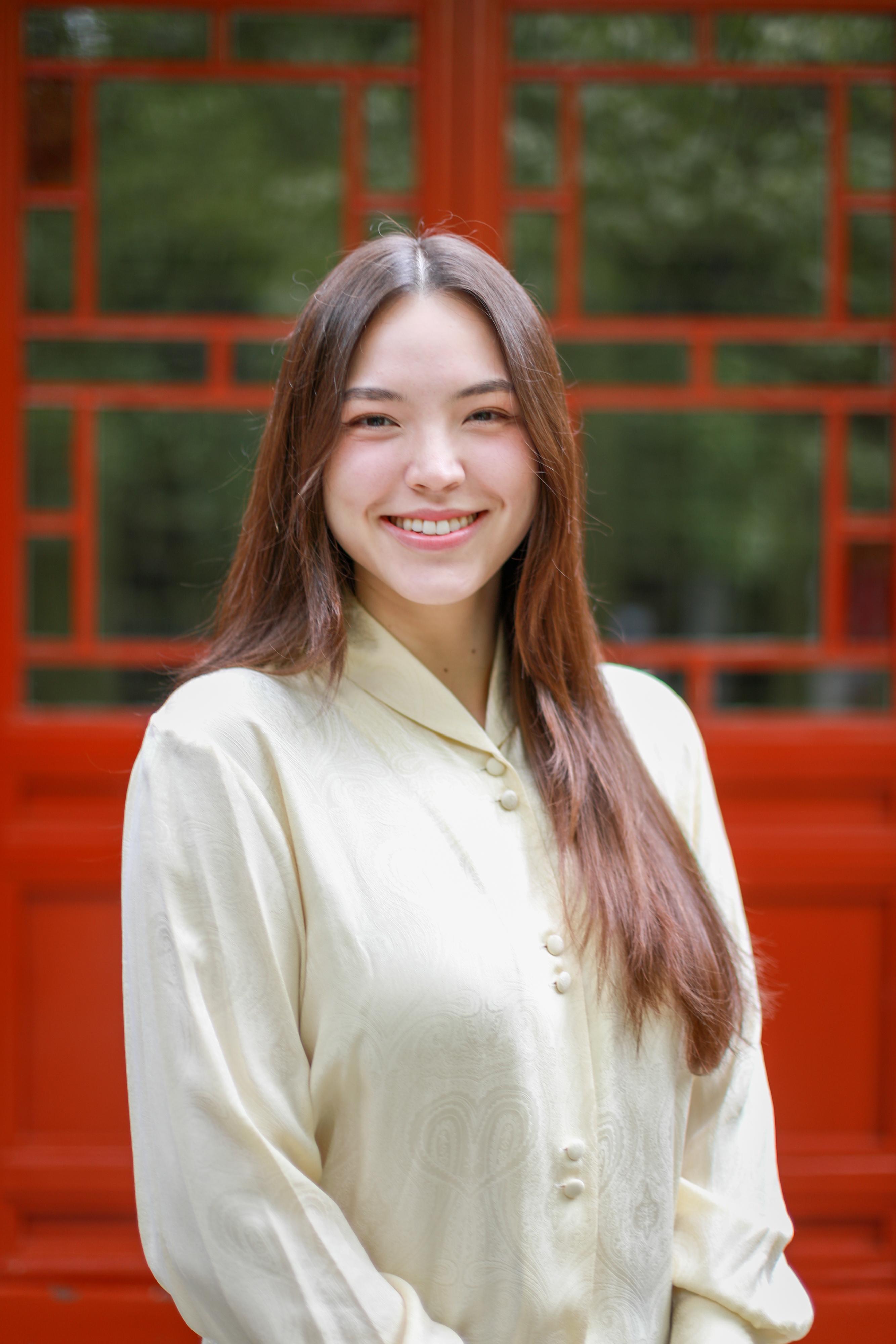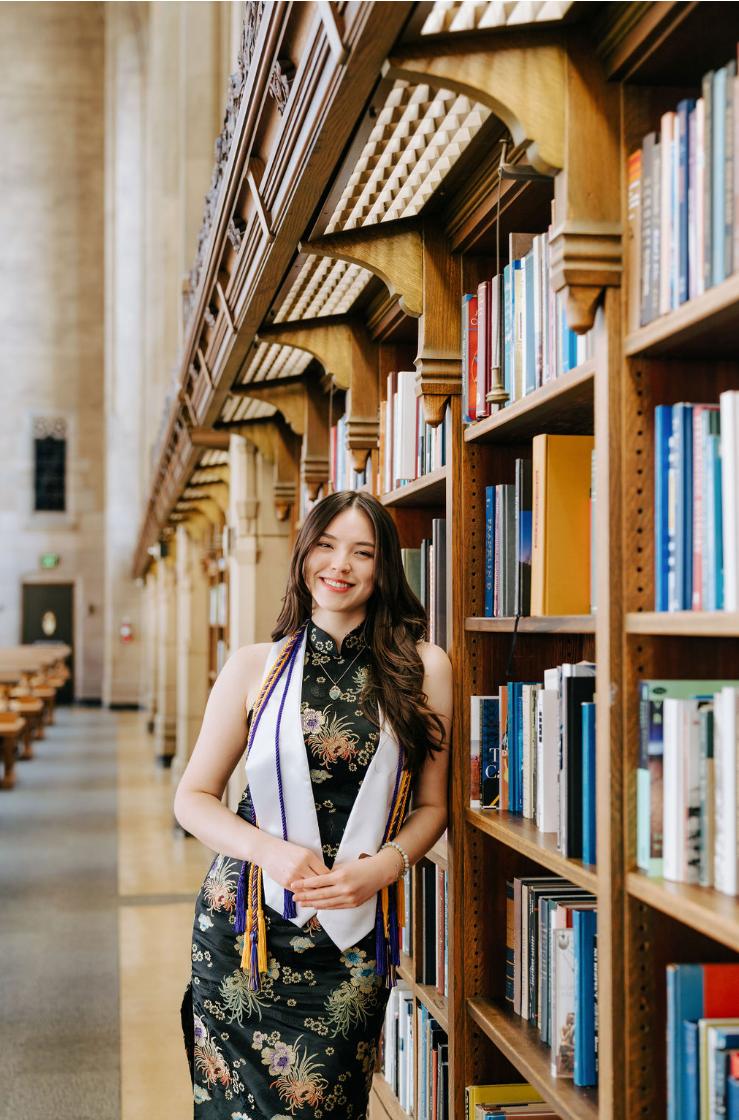This is a very trite quote from Lao Tzu to begin with, but it seems fitting for the occasion of our arrival: “A journey of a thousand miles begins with a single step.”
The first time I visited China was in the summer of 2015 before eighth grade. I had tagged along on a University of Washington study abroad to South China called, “Finding Roots: The Hokkien and Cantonese Chinese Diaspora.” This study abroad was the first chance for many of us to visit our ancestral home. The academic focus of this journey facilitated a deeper understanding of history, providing a lens through which to better understand overseas Chinese, 華僑—a lens that positioned my family and me as but a small part of a much greater history.

Along with 23 undergraduate students, mostly of Chinese descent, we visited Hong Kong, Macao, Taipei, Xiamen, Guangzhou, Shunde, Foshan, Haikou, and Sanya and learned more about the ancient maritime and land silk trade routes, the significance of temples, heroes, and intellectuals from the turn of the century through modern China, and, of course, enjoyed Baiyue cuisine. Although, as a rising eighth grader, my grasp on this history was limited, the experience of visiting my maternal family’s hometown and connecting with locals in Cantonese showed me how invaluable language and history are.
As a descendant of Taishanese and Cantonese immigrants to the United States, I felt overwhelming pride, particularly when I watched performances such as “The House of Dancing Water” in Macau, “The Legend of Romance” in Hainan, and visited the Nanputuo Temple in Xiamen, Chen Clan Ancestral Hall in Guangzhou, and Bruce Lee Paradise in my maternal grandfather’s hometown, Shunde. Through various activities, and by simply being in China, I learned more about the cosmopolitan nature of the region, the integration of many cultures, and the impact of Western imperialism—all while retaining aspects of Baiyue culture. This was a history told by my parents, but ignored in my schooling.
Since 2015, I awaited the opportunity to study in China again, but due to the COVID-19 pandemic and my own chronic illness, this became impossible during my time as an undergraduate at the University of Washington. Still, when the time came to consider my next steps after graduation, the possibility of studying in China returned. Soon after, I learned about the Yenching Academy and knew I could not pass up the opportunity to apply.
Leading up to our arrival, many of us have surely been asked what has led us to the Yenching Academy. As we were asked in the first newsletter, “why did we choose to study in China?” and “what do we hope to find on our journey here?” We all have a different answer to these questions, a different journey that has led us to where we are, but we have all, nonetheless, found our way here.

My interest is both academic and personal, but as someone with undergraduate majors in American Ethnic Studies, specifically Asian American Studies, and English, with a focus on Creative Writing, you could argue I have a record of fueling my academic pursuits with the personal—my culture, my communities, my language, my history. In this context, the academic and the personal are often inseparable. The personal answers the question of “why?” Why study law and society; economics and management; history and archaeology; philosophy and religion; politics and international relations; or literature and culture? Why are these disciplines worth studying, to the point of pursuing a master’s degree and potentially beyond?
While I feel I have a good understanding of Chinese American history, the little time I have spent in China is more valuable than many western books about China. For example, people can describe how Chinese may eat certain food, or take off shoes entering homes, but they may not be able to explain why this is an important, instinctive habit shared among so many people across the globe. Many of us here are a part of diasporic and colonial histories, but I still marvel at how aspects of our cultures remain resilient despite these external forces.
Despite the time, distance, and often, culture separating hua qiao (華僑)—overseas Chinese—from our parents’ homelands, history remains and connects us to the greater diaspora. Language, literature, poetry, oral histories, passed-down culture, and community carry the memory of this history between each generation, but this responsibility exists just as much in the present as it has in the past. This has been the heart of my undergraduate studies, and this will continue to drive my studies at the Yenching Academy.
Some may have similar stories to mine, and others’ stories may be entirely different, but here, today, we become a part of an international community within the Yenching Academy where we may begin to move beyond the question of “why?” and into the questions of “what and how?” What will each of us do with the skills we acquire and how will we make the most of our time here? We are the tenth cohort to date, but many have come before us, and many will follow. I am excited to begin this journey together, one step today and another tomorrow.